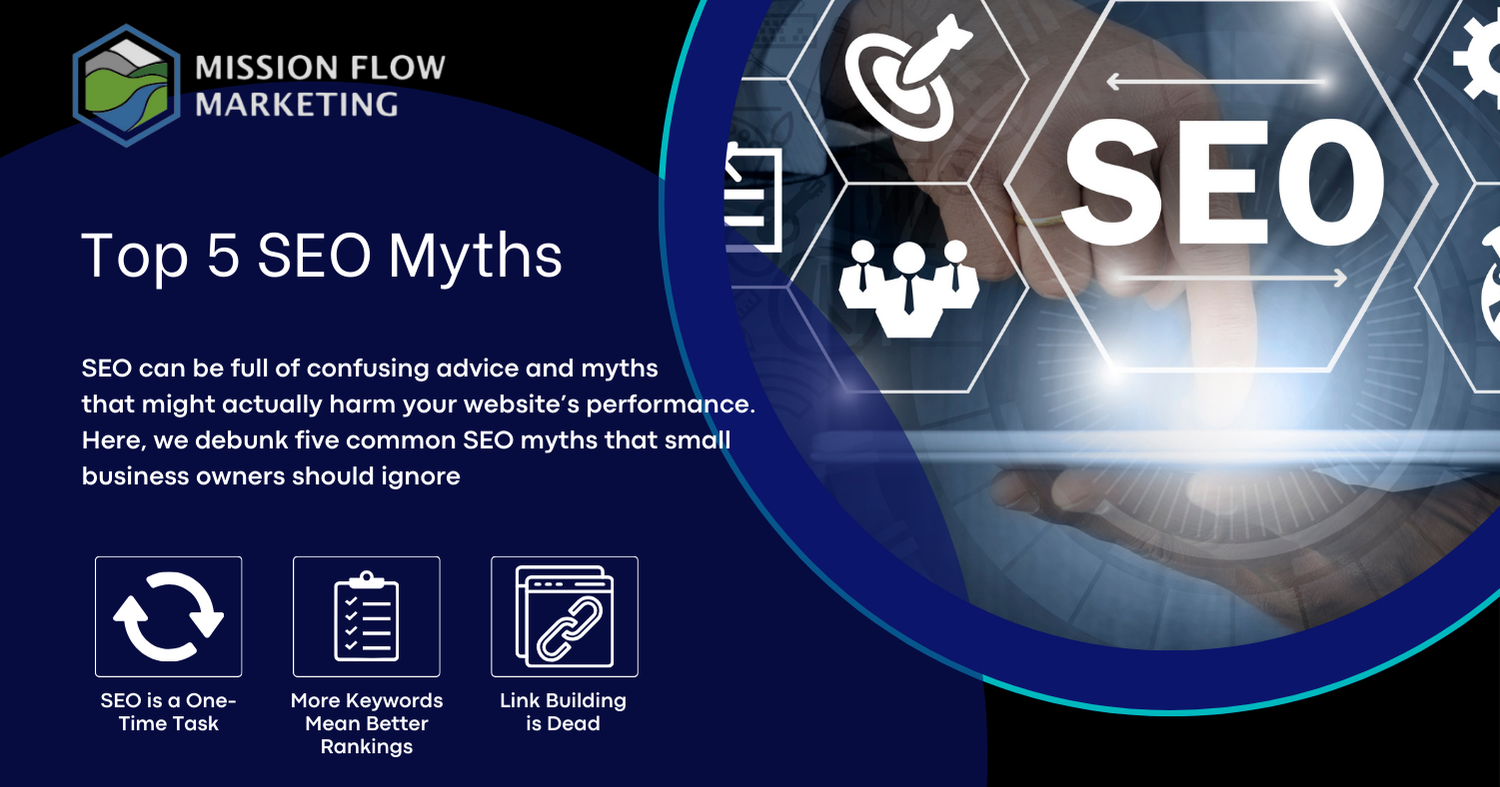

Search engine optimization (SEO) is vital for improving your website’s visibility, attracting organic traffic, and reaching potential customers. However, SEO can be full of confusing advice and myths that might actually harm your website’s performance. Here, we debunk five common SEO myths that small business owners should ignore to focus on strategies that work.
One of the most persistent myths about SEO is that it’s a “set it and forget it” strategy. Many small business owners believe that once their site is optimized, they’re done with SEO. However, SEO is an ongoing process that requires regular updates and adjustments to stay competitive.
Search engine algorithms change frequently, and your competitors are always optimizing their own sites. To maintain and improve rankings, you need to keep your content fresh, monitor performance, and stay up-to-date with the latest SEO practices.
Regularly update your content, add new keywords as trends evolve, and review your website analytics to see where improvements can be made.
Some business owners still believe that the more keywords they add to their website, the higher it will rank. This practice, known as keyword stuffing, is actually harmful to SEO and can result in penalties from search engines like Google.
Quality matters more than quantity. Search engines focus on how relevant and natural your content is to the user’s search intent. Overloading a page with keywords makes it difficult to read and can harm user experience, leading to a drop in rankings.
Focus on high-quality, relevant keywords that flow naturally within your content. Use synonyms and related phrases to avoid repetition while still covering the topic.
Some believe that link building—earning links from other reputable sites to boost your site’s authority—is outdated and no longer matters. In reality, links are still one of the most important factors in SEO.
While the approach to link building has changed, it’s still a critical part of a successful SEO strategy. Earning high-quality, relevant backlinks from reputable sources can boost your website’s credibility and improve your search rankings.
Focus on building relationships with other businesses, contributing to industry blogs, or sharing valuable resources to earn backlinks naturally. Avoid spammy or paid links, as these can hurt your rankings.
It’s easy to get frustrated when you don’t see immediate results from your SEO efforts, but expecting instant results is unrealistic. SEO takes time to show real, measurable results, especially for new or small websites.
SEO is a long-term strategy that can take months to show significant progress. Search engines need time to crawl and index your changes, and building authority in your industry requires consistent effort. Patience and persistence are key.
Set realistic goals and monitor gradual improvements in metrics like organic traffic, bounce rates, and keyword rankings. Consistent, quality content and optimization will pay off over time.
Many believe that a strong social media presence will directly improve SEO rankings. While social media is essential for marketing and engagement, it doesn’t have a direct impact on search engine rankings.
Search engines don’t use social signals (likes, shares, followers) as a direct ranking factor. However, social media indirectly benefits SEO by driving traffic to your site, increasing brand visibility, and helping content reach a larger audience.
Use social media to share your content, engage with your audience, and build a following. The increased exposure and traffic can complement your SEO efforts, but don’t rely on it solely to boost your search rankings.
SEO can be complex, and navigating through myths and misconceptions can be challenging. By understanding and ignoring these common SEO myths, small business owners can focus on proven strategies that truly help their websites succeed. Remember, SEO is an ongoing journey that requires consistent effort, quality content, and a focus on user experience.
Need help with your SEO strategy? Contact Mission Flow Marketing for a free quote today! Our team specializes in helping small businesses improve their online visibility with tailored, results-driven SEO solutions.